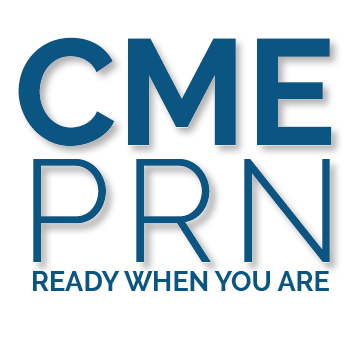
Total Credits: .75 including .75 AMA PRA Category 1 Credit(s)™, .75 AOA Category 1-A Credit(s)
This program will expire and must be completed by 01/05/27.
*** Please note this program was part of the KCU Homecoming 2023. If you participated in the live event, you would not want to choose this program. ***
This presentation will discuss osteoporosis in men. There will be special emphasis given to a younger, athletic male population. In addition, the impact exercise of different modalities may play in both the development of osteoporosis but also in treatment.
Learning Objectives:
· Physicians should be able to identify men at greater risk of developing osteoporosis or osteopenia, especially at younger ages, who traditionally are not thought to be at risk.
· Physicians should be able to discuss and articulate strategies for helping men who have developed osteoporosis or osteopenia maintain healthy bone density or improve bone density.
Accreditation Statement:
The event has been planned and implemented in accordance with the accreditation requirements and policies of the Accreditation Council for Continuing Medical Education (ACCME) and the American Osteopathic Association (AOA) through the joint providership of the Missouri Association of Osteopathic Physicians and Surgeons (MAOPS) and Kansas City University (KCU) College of Osteopathic Medicine. MAOPS is accredited by the ACCME to provide continuing medical education for physicians.
AMA (Allopathic) Credit Designation:
MAOPS is accredited by the ACCME to provide continuing medical education for physicians. MAOPS designates this activity for a maximum of .75 AMA PRA Category 1 Credit(s)ä. Physicians should claim only the credit commensurate with the extent of their participation in the activity.
AOA (Osteopathic) Credit Designation:
MAOPS is accredited by the AOA to provide osteopathic continuing medical education for physicians. MAOPS designates this program for a maximum of .75 AOA Category 1-A CME Credit(s) and will report CME and specialty credits commensurate with the extent of the physician’s participation in this activity.
Planning Committee Disclosure:
Each of the members of the KCU CME Planning Committee discloses that he/she has no actual or potential conflict of interest in relation to this presentation, including no relevant financial relationships with any commercial interests relative to the content of this program.
Grievance Policy for AOA Credit:
All grievances should be in writing and should specify the nature of the grievance. Initially, all grievances should be directed to MAOPS Executive Director, who will then forward said grievance to the Education & Convention Committee. All grievances will receive an initial written response within 30 days of receipt. If the participant does not receive a satisfactory response, they can submit a complaint in writing to the Council on Continuing Medical Education of the AOA at 142 East Ontario Street, Chicago, IL 60611.
| PowerPoint Slides (1.75 MB) | 32 Pages | Available after Purchase |

Robert Rogers, MA, PhD, starting working as an Assistant Professor and OMS-1 Phase Director at Kansas City University six years ago. Currently, he is the Assistant Dean of Curriculum & Associate Professor of Physiology at Kansas City University.
Dr. Rogers is an exercise physiologist that researches molecular mechanisms that are involved in the beneficial adaptations to exercise training. His work has a special emphasis on type 2 diabetes and insulin signaling including the influence of inflammatory and anti-inflammatory molecules on the insulin signaling network. Recently, his work has expanded to investigate the influence of exercise on stress and inflammation, specifically on salivary biomarkers of stress in type 2 diabetics.
Dr. Rogers discloses that he has no relevant financial relationships with any organization producing, marketing, reselling or distributing health care goods or services consumed by, or used on, patients relative to the content of his presentation.
Contact: rrogers@kansascity.edu or 816-810-2015.